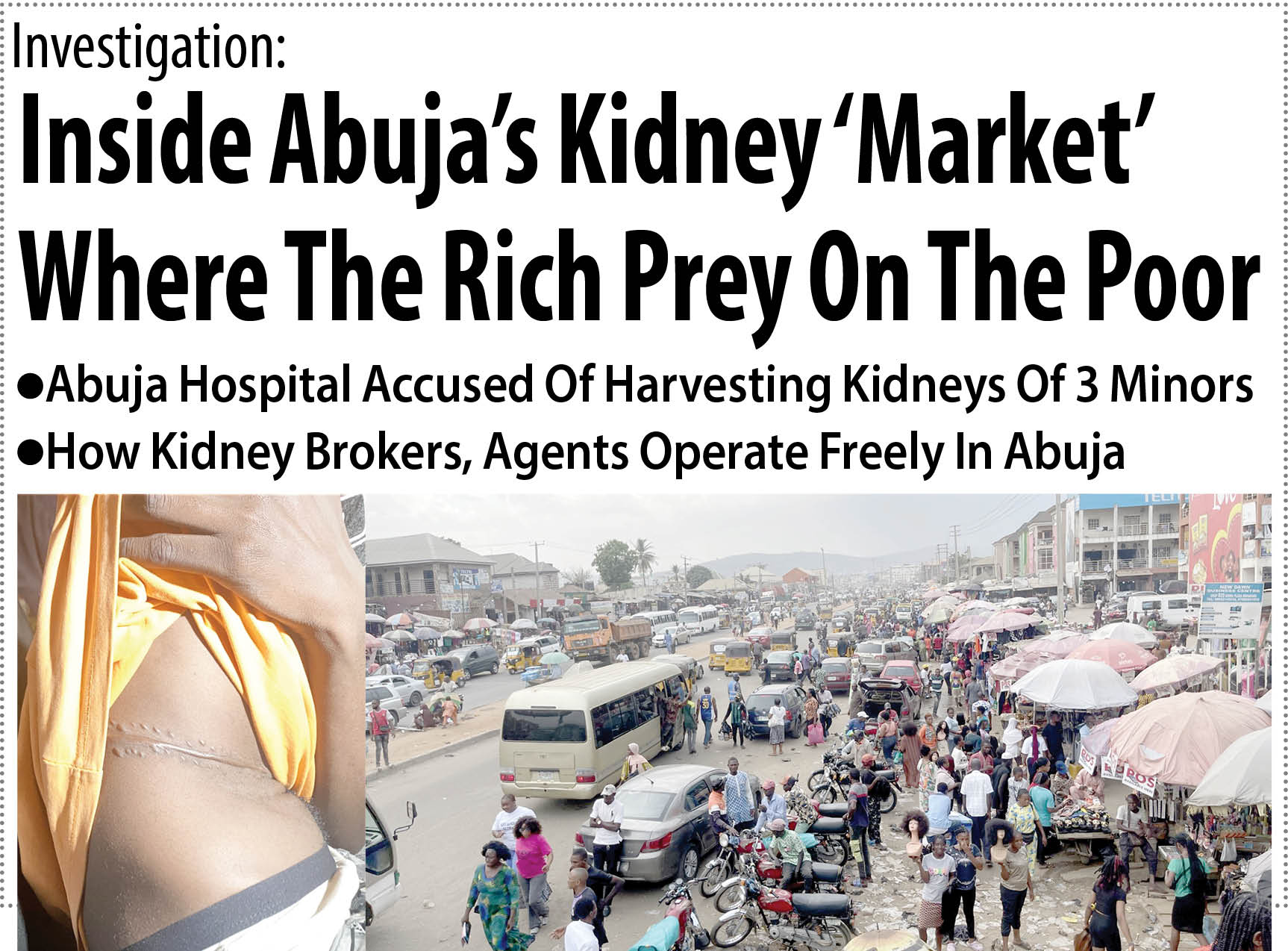A three-month undercover investigation by Daily Trust exposes a shadow economy of illegal kidney trade in Abuja, Nigeria.
Vulnerable individuals, including minors, are coerced or enticed into selling their kidneys for financial gain. The report details a network of agents and hospitals involved in this crime, highlighting the absence of regulations in Nigeria’s healthcare system.
Despite ethical and legal bans, the demand for kidneys persists, leading to dire consequences for both donors and recipients. The Ministry of Health’s inaction adds to the problem, revealing a concerning lack of oversight in organ transplantation, writes Lami Sadiq for Daily Trust.
Govt Speaks On Report of Illegal Kidney Trade
In this three-month long investigation, Daily Trust on Sunday went undercover to expose a shadow economy of illegal kidney trade in Nigeria’s Federal Capital Territory.
By Mariam Ileyemi
The investigation further revealed how a Lagos-based broker recruits young boys to act as agents to lure boys to sell their kidneys to renal patients.
The Nigerian government has acknowledged the existence of illegal kidney trade in Nigeria’s Federal Capital Territory (FCT), highlighting its interventions to curtail the act.
Daily Trust in an investigation Sunday, detailed the thriving economy of illegal kidney trade in the FCT and how agents operate freely, luring young men from low economic backgrounds to sell their kidneys.
The investigation also highlighted how Nigeria’s socio-economic challenges have contributed to the travails of the young men who sell their kidneys without minding the long-term repercussions, as Nigeria has no regulatory body in charge.
However, in a reaction to the findings via his official X account Sunday, the Minister of Health and Social Welfare, Muhammad Pate, clarified that there is a policy and legal framework that enables regulation of health practice in Nigeria, including medical transplantation.
Mr Pate said Sections 51-56 of the National Health Act 2014 (NHA 2014) prohibit the illegality uncovered in the investigation, adding that the central issues concern the enforcement practices and evasion of the regulatory guidelines by criminals.
More interventions
The minister further noted in his reaction that his ministry recently inaugurated the Tertiary Hospitals Care Standards Committee to enhance the effectiveness of the government in regulating practices.
He noted that in the proposed 2024 appropriation directed by President Bola Tinubu, ”we slated significant resources to enhance such regulations and curb the criminality experienced by Nigerians over so many years in the past.”
Mr Pate added that the Medical and Dental Council of Nigeria (MDCN) is also gearing up to enforce standards to be followed by medical professionals in Nigeria.
”However, regulation of hospitals relies on state governments, whom we expect will also step up to ensure such facilities in their domains, as found by the journalists, are properly checked,” he noted.
More findings
The investigation further revealed how a Lagos-based broker recruits young boys to act as agents to lure boys to sell their kidneys to renal patients.
The reporter also went undercover posing as a kidney broker to verify the information obtained from victims and sources.
The investigation cited the NHA section 54 that the National Tertiary Health Institutions Standard Committee shall prescribe criteria for the approval of organ transplant facilities.
However, sources told Daily Trust on Sunday that the committee had not been active between 2021 and October 2023.
According to the report, a Freedom of Information request delivered to the office of the Minister was not replied to but sources within the ministry revealed that they have no policy for organ harvesting and transplantation.
Read the original article on Premium Times.


